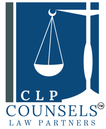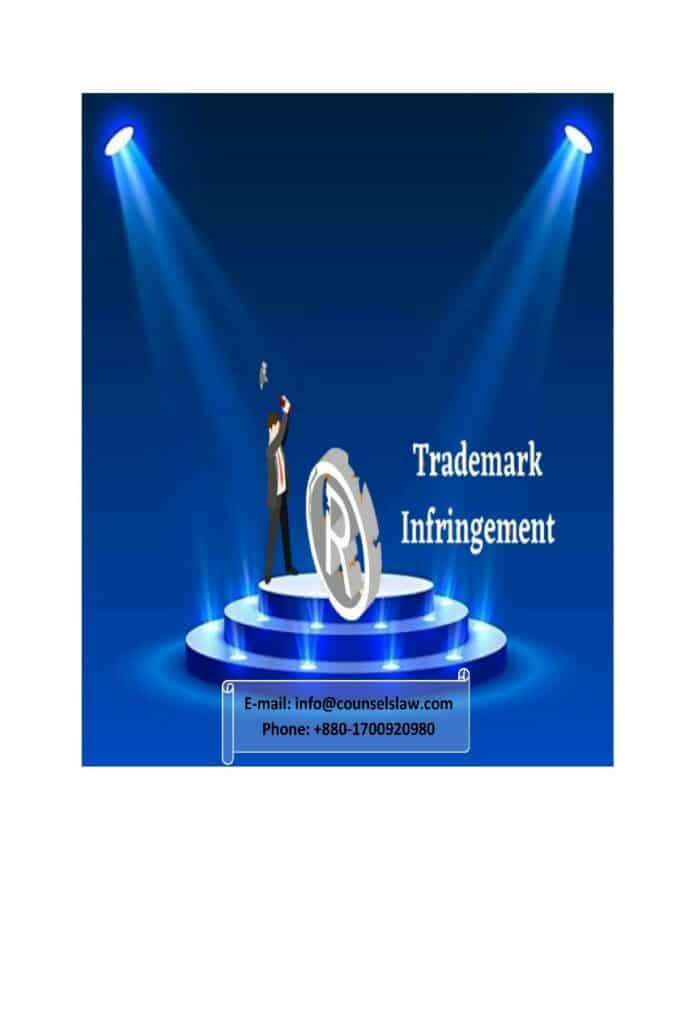Introduction
A trademark is a sign which serves to distinguish the products of one enterprise from the products of another enterprise. Here the product means any item which is sold and therefore needs to be distinguished to allow the customer to make his/her choice. In Bangladesh, trademark registration is regulated by the Trademarks Act 2009. In this article, we will discuss two common issues, the Passing Off and Infringement of Trademarks along with the Legal Remedies for the Infringement of Trademarks. In addition to these issues and remedies, we will also discuss briefly the assignment and transmission of trademarks.
Passing Off Trademark Infringement and Remedies
As per Section 96 (d) of the Act 2009, “passing off arising out of the use by the defendant of any trademark which is identical with, or, deceptively similar to, the plaintiff’s trademark, whether registered or unregistered.” So, the passing off is indicating the prohibition mentioned above under Section 10 of the Act 2009. To avoid the passing off issue, the Registrar of Trademarks must see whether a trademark is deceptive or misleading and there are some prohibitions on the registration of identical or deceptively similar trademarks. These prohibitions are as follows:
- No trademark shall be registered in respect of any goods or description of goods or in respect of any services or description of services which is identical or deceptively similar to trademarks.
- No trademarks shall be registered in respect of any goods or services if it is identical with or confusingly similar to or constitutes a translation or a mark or trade de4scription which is well-known in Bangladesh for identical or similar goods or services of another enterprise.
- In determining whether a mark is well known the knowledge of the mark in the relevant sector of the public, including knowledge which has been obtained in Bangladesh as a result of the promotions of the mark, shall be taken into account.
Case law on Passing off
In the case of New Zealand Milk Brands Ltd. Vs Sanowara Dairy & Industries Ltd. 30 BLD (HCD) 2010, the High Court Division stated that the only test that has to be applied when the court is considering a case under Section 10 is the test of identity or resemblance. Even if the applicant could establish a longer user, if the respondent could establish no user at all, if there was a resemblance between the marks of the applicant and the respondent, if there was a likelihood of deception, and if the respondent was first in the field and had their trademark registered, the applicant’s trademark could not be registered.
Infringement Of Trademarks
Infringement of trademark occurs when a person uses an identical or similar mark for identical or similar goods or services. However, unless both the mark and goods or services are identical, the plaintiff must prove that because of the use of the identical or similar mark by the defendant, there exists a likelihood of confusion on the part of the public. Section 26 of the Act 2009 deals with the provision for infringement of trademarks and the digest of the Section comes in the way like:
A trademark is infringed when a person other than the owner of the registered trademark uses thereof a trademark which is identical with, or deceptively similar to, any trademark, in relation to goods or services of his own trade.
Use of a registered trademark happens if it is used in the following manner if someone:
- affixes it to goods or the packaging thereof,
- offers or exposes goods for sale, puts them on the market or stocks them for those purposes under the mark, or offers or supplies services under the mark,
- imports or exports goods under the mark,
- uses the mark on business papers or in advertising.
Case law on Trademark Infringement
The Court always use its discretionary power to determine such infringement for the greater good. Even the Court is rigid enough to rectify the registered trademarks to provide a safe and non-confusing environment to the public at large to choose the right and good quality products by identifying the original brand by looking and hearing the name of the brand itself. In Baby Food Products Ltd. Vs Nabisco Biscuit and Bread Factory Ltd. 30 BLD (HCD) 2010 Page-27, it was held by the High Court Division that due to the deceptively similar name six Trademark registrations should be expunged and rectified from the Register of Trademarks. The Appellate Division in appeal by the Baby Food Products Ltd. has affirmed the decision of the High Court and held that whatever product the appellant is producing and selling in the trade name of NABICO is likely to deceive the people at large who will presume the products to be of the NABISCO being misled by the similarity in sound.
The distinction between infringement and passing off
There are some basic differences between the infringement of a trademark and passing off and these are as follows:
- In the infringement of a trademark, registration is a must whereas registration is not so relevant for action under passing off,
- In infringement, the defendant must use the trademark directly on the other hand the defendant’s product need not carry the same. If there is some representation, it is sufficient to take action under passing off.
- If the marks of the defendant are deceptively similar, no further proof is required or necessary. On the other hand, the identity or similarity of the mark is not sufficient. The use of the mark is likely to deceive or cause confusion among consumers.
- Infringement is defined by the statute, whereas the passing off is highly influenced by the common law rights and remedies, like injunction etc.
Remedies against the infringement of trademark and passing off
There are three ways under which an aggrieved person can get remedies and these are:
- Civil remedies,
- Criminal remedies, and
- Administrative remedies.
The available remedies under the above-mentioned ways are as follows:
Civil remedies:
The types of relief to which a plaintiff is entitled are-
- An injunction restraining further use of the infringing mark,
- Damages or an account of profits, and
- Order for delivery of infringing labels and marks for destruction or erasure.
As per Section 96 of the Act 2009, a suit for infringement of a registered trademark can be filed before the District Judge Court includes the Court of an Additional District Judge or a Joint District Judge (as per Section 2 (4) of the Act 2009) for the following matters:
- For the infringement of a registered trademark,
- For the infringement of any right relating to the registered trademark,
- For the infringement, if any correlated rights to the registered trademark, and
- For passing off arising out of the use by the defendant of any trademark which is identical with or deceptively similar to, the plaintiff’s registered or unregistered trademark.
Criminal remedies
The following elements are criminal offences punishable under Sections 71 to 79 of the Act 2009-
- Applying for a false trademark to mislead consumers about the origin of the goods,
- Counterfeiting a trademark without the assent of the proprietor of the trademark,
- Making or possessing any instrument for the purpose of counterfeiting a trademark,
- Applying any false trade description to goods and services,
- Applying false indication of a country to goods or services as regards the place of production or manufacture them,
- Selling or exposing or possessing for sale or any purpose of trade or manufacture any goods bearing a false trademark or description,
- Falsely representing a trademark as registered,
- Improperly describing a place of business as connected with the Trademarks office, and
- Falsification of entries in the Trademark Register.
Punishment
Punishment for the above-mentioned offences is imprisonment for up to 2 (two) years but not less than 6 (six) months or a fine up to BDT 2 (two) lac but not less than BDT 50 (fifty) thousand, or both and for a second conviction for repetition of the crime, imprisonment up to 3 (three) years but not less than 1 (one) year or fine up to take BDT 3 (three) lac but not less than BDT 1 (one) lac, or both.
Administrative remedies
Under Section 42 of the Act 2009, an aggrieved person can apply to the Registrar of Trademark for removal of a registered trademark from the Register on the grounds either that the registered trademark lacks bonafide intention on the part of the owner to use it about those goods or services and there has been no such use till the date one month before the date of the present petition or the registered trademark was not used for five years or longer period up to a date one month before the date of the present petition.
Alternatively, under Section 43 of the Act 2009, an aggrieved person can apply to the Registrar of Trademarks for cancellation of trademark registration as a defensive trademark. A defensive trademark means a trademark consisting of any invented word that has become so well-known with respect to any goods or services in relation to which it is registered and has been used, that the use thereof in relation to other goods or services, as the case may be, would be likely to be taken as indicating a connection in the course of trade.
Assignment and transmission of trademarks
As per Section 33 of the Act 2009, the proprietor of a registered trademark shall, subject to the provisions of this Act and to any rights appearing from the Register to be vested in any other person, have the power to assign the trademark, and to give effectual receipts for any consideration for such assignment.
However, there are two specific criteria regarding the assignment and transmission of registered and unregistered trademarks. As per Section 34 of the Act 2009, a registered trademark shall be assignable and transmissible whether with or without the goodwill of the business concerned and in respect either of all of the goods or services in respect of which it is registered or of some only of those goods or services. On the other hand, as per Section 35 of the Act 2009, An unregistered trademark shall not be assignable or transmissible except along with the goodwill of the business concerned.
Counsels Law Partners (CLP)
CLP is a full-service law firm which has been dealing with all types of Trade Marks issues and registration through its competent and experienced lawyers. Therefore, if you need any assistance or consultation, visit us at our office or feel free to contact us at +8801700920980 (WhatsApp) or via Email- info@counselslaw.com .
You may interested to know:


